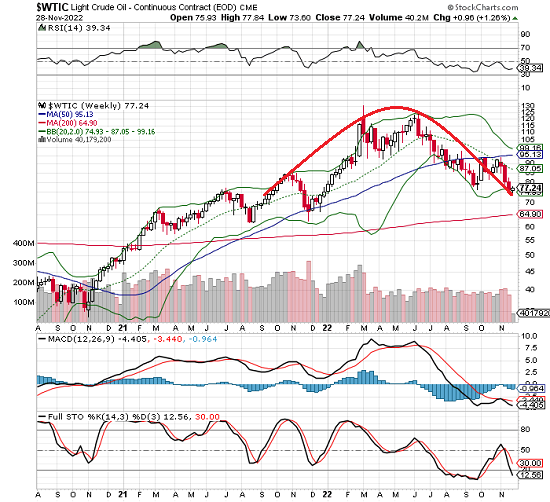It’s not just the price of oil that matters: how much disposable income consumers have left to buy more goods and services matters, too. The Oil Curse (a.k.a. The Resource Curse) refers to the compelling ease of those blessed with an abundance of oil/resources to depend on that gift for the majority of state/national revenues. The risks and demands of developing a diverse, globally competitive economy don’t seem worth the effort when the single-source wealth of oil offers such a low-risk bounty of revenues. This dependence becomes a curse when the market value of the oil/resources plummets. Having come to depend on that seemingly inexhaustible source of massive revenues, even states that have set aside prudent reserves soon find their expenses cannot align down to
Topics:
Charles Hugh Smith considers the following as important: 5) Global Macro, 5.) Charles Hugh Smith, Featured, newsletter
This could be interesting, too:
RIA Team writes The Importance of Emergency Funds in Retirement Planning
Nachrichten Ticker - www.finanzen.ch writes Gesetzesvorschlag in Arizona: Wird Bitcoin bald zur Staatsreserve?
Nachrichten Ticker - www.finanzen.ch writes So bewegen sich Bitcoin & Co. heute
Nachrichten Ticker - www.finanzen.ch writes Aktueller Marktbericht zu Bitcoin & Co.
It’s not just the price of oil that matters: how much disposable income consumers have left to buy more goods and services matters, too.
The Oil Curse (a.k.a. The Resource Curse) refers to the compelling ease of those blessed with an abundance of oil/resources to depend on that gift for the majority of state/national revenues. The risks and demands of developing a diverse, globally competitive economy don’t seem worth the effort when the single-source wealth of oil offers such a low-risk bounty of revenues.
This dependence becomes a curse when the market value of the oil/resources plummets. Having come to depend on that seemingly inexhaustible source of massive revenues, even states that have set aside prudent reserves soon find their expenses cannot align down to diminished oil revenues without unbearable political/social pain.
The ideal solution to this problem is to jawbone oil prices higher by splashily announcing major cuts in oil production and then ignoring the proposed cuts to pump as much oil as possible to restore spending to politically viable levels.
| The problem is every other oil producer is pursuing the same game plan and so production doesn’t actually decline.As global demand continues sagging in a global recession, oil supply remains at high levels. Since oil and other commodities are priced on the margin, even modest misalignments of supply and demand can generate huge swings in price.
There is no real enforcement of heavily promoted production cuts. The pressure on every oil producer is to assure the world they’re complying to cover the reality that they’re not actually cutting production because they can’t afford to lose any more revenues. The price of oil appears to be reflecting the global recession that’s baked into receding stimulus and liquidity and higher inflation. China’s attempt to secure Zero Covid is also exerting downward pressure on oil demand. As consumers globally come to grips with layoffs, depleted savings and maxed-out credit cards, demand can be expected to drop further. All those who treated themselves to high living (vacations, dining out, etc.) on credit will soon find the noose of interest payments tightening around their necks, and all goods and services priced on the margin may fall with weakening demand, decimating hours worked, employment and profits. There’s another twist to The Oil Curse story: now that the easy-to-get oil is gone, it now requires massive, permanent investments in future production to keep the oil flowing. Governments seeing their revenues decline will naturally slash investment to fund the politically essential welfare-graft that enables their grip on power. Starved of essential investment, oil production inevitably declines, further reducing revenues of oil-dependent states. This feedback loop is unforgiving: less investment leads to less oil which leads to less revenues which further squeezes investment. It’s not just the price of oil that matters: how much disposable income consumers have left to buy more goods and services matters, too. Put another way: demand can fall below supply for longer than oil producers can remain solvent. |
Tags: Featured,newsletter

